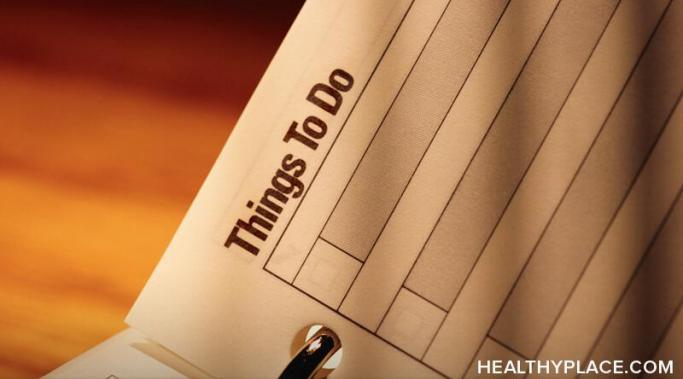Feeling overwhelmed, exhausted, and disillusioned at work? You may have burned out - or you may have a case of depression. It is easy to confuse one for the other because depression and burnout have a lot of symptoms in common. However, having experienced both, I can vouch for the fact that they are not one and the same thing.
Work and Bipolar or Depression
Post-vacation depression is real. This Monday, I returned to work after 18 days. It was not a holiday per se, for I was physically sick and had to get a couple of tests done, but it was a break from work and the daily routine. I should have expected that I would soon be dealing deal with post-vacation depression.
Depression at work during the holidays may be slightly different than during the rest of the year. The holidays are a tough time for people in general, causing otherwise happy people to get a case of depression. For chronically-depressed people, the holidays are when their depression tends to get worse. Combine that with work—most of which is overtime—and the situation gets all the harder to handle. Here are a few things you can do to cope with depression at work during the holidays.
Is there a way to overcome morning depression that makes you want to stay home from work? After all, when you have depression, waking up can be the hardest part of the day. In fact, mornings themselves are more difficult to deal with than other times of the day because after hours of a good or disturbed night's sleep, you have to confront your depression once again. And unlike when you are sleeping, morning is when you are fully conscious of your depression and all its features.
Do you have a strong feeling that one of your coworkers has depression and needs a little help at work every now and then? While it is kind of you to want to help instead of turning a blind eye to the whole situation, you have to use discretion lest you end up offending or pushing away your coworker. Here are four tried and tested tips that you can use to help a depressed coworker.
For many of us who suffer from depression, there's one major character flaw we have to deal with, especially at work. I am talking about apathy, or in this case, work apathy. Here's how you can deal with it.
Should you disclose your depression to your future employer during the interview process? Let's take a look at telling vs not telling your future employer about your depression.
Thinking traps, also known as cognitive distortions, are exaggerated or unbalanced thinking patterns that negatively impact mental and emotional health. While thinking traps are common and can affect anyone from time to time, people living with bipolar disorder, depression, or anxiety are especially susceptible. The following are three common thinking traps that I often find myself caught in, especially in relation to my job: all-or-nothing thinking, overgeneralization, and labeling/mislabeling.
When one is severely depressed, work is usually the last thing on one's mind. In fact, many people, including me, have to battle active suicidal ideation and struggle to get out of bed each day. Unfortunately, work doesn't stop just because you are not in the right state of mind to do it. If you are one of the lucky few who can take time off from work, go ahead and do it right away. But if your workplace or job does not allow for you to take a break, here is how you can stay productive even when you are severely depressed.
For those with bipolar disorder, episodes of mania/hypomania cause racing thoughts that make it difficult—if not, impossible—to work. For me, racing thoughts are a mix of bursting creative ideas and intrusive onslaughts of useless and unrelated mental chatter. As you can imagine, this makes it difficult to work. I'm either too busy trying to keep up with my ideas or too distracted and overwhelmed by the never-ending chatter. I get frustrated by my inability to focus, irritated by disruptions, and the chaos in my brain leaves me completely drained. For me to get any work done with racing thoughts, I need to carve out an environment that eliminates as many triggers as possible.









